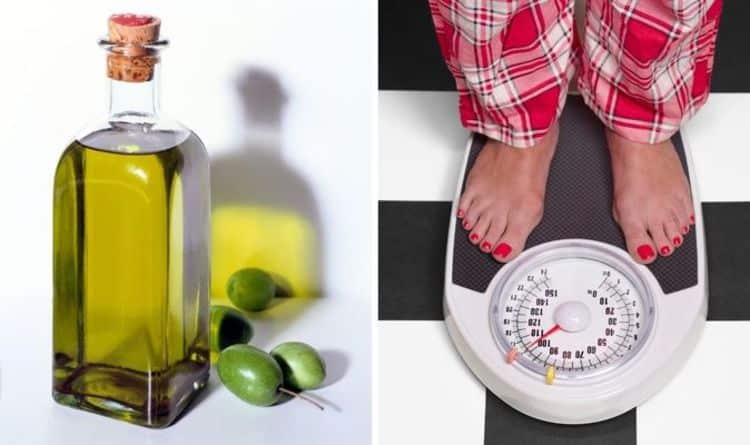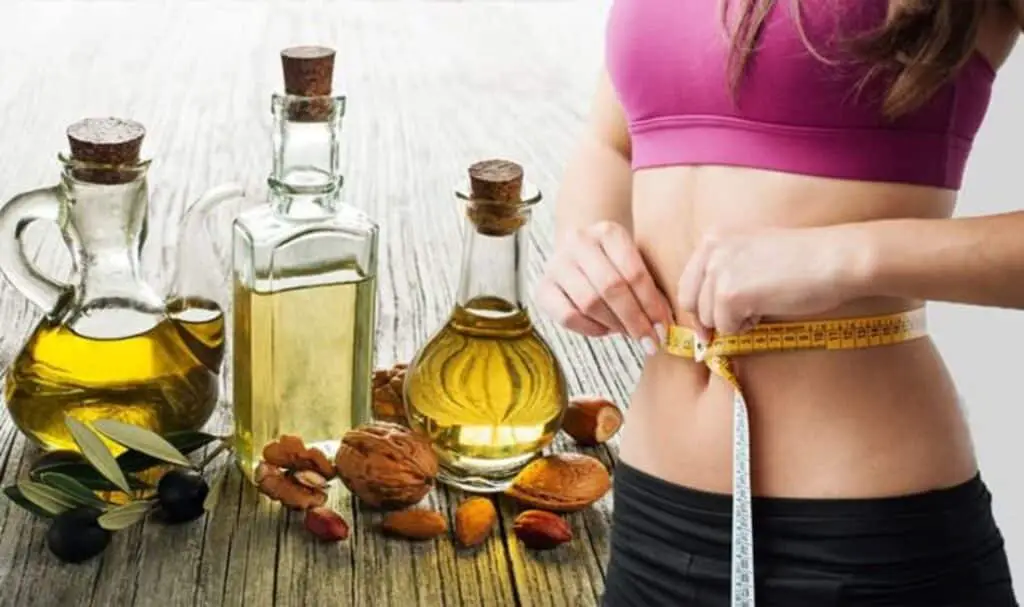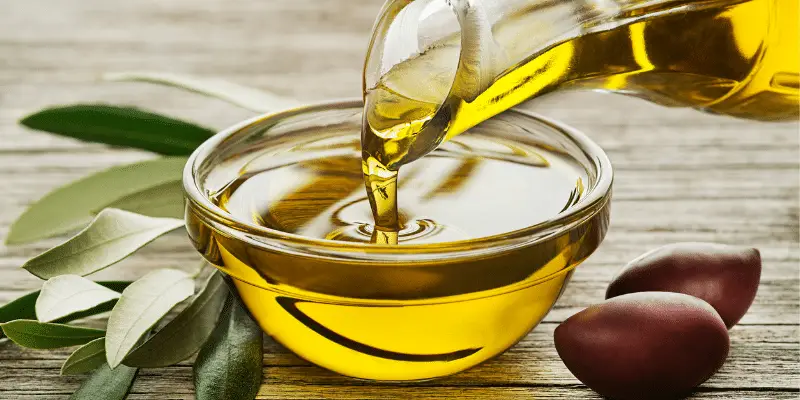Introduction
Does Olive Oil Help With Weight Loss: Olive oil, a staple of Mediterranean cuisine, has garnered a reputation not only for its rich flavor but also for its numerous health benefits. Its unique composition, primarily consisting of monounsaturated fatty acids (MUFAs), particularly oleic acid, sets it apart from other cooking oils. These MUFAs are believed to play a pivotal role in various aspects of health, including weight management.
The premise behind the potential weight loss benefits of olive oil lies in its ability to influence several mechanisms within the body. Firstly, MUFAs are known to promote satiety and reduce appetite, which may lead to lower calorie consumption over time. Additionally, these healthy fats may enhance the thermogenic effect of food, meaning they could slightly boost the body’s calorie-burning capacity after a meal. Olive oil is rich in antioxidants and anti-inflammatory compounds, which may indirectly support weight loss by reducing chronic inflammation and metabolic disturbances often associated with obesity.
While these potential mechanisms paint an intriguing picture, Navigate this subject with a critical lens. Scientific research on olive oil’s direct impact on weight loss is still evolving, and not all studies have yielded consistent results. The type and quantity of olive oil consumed, as well as overall dietary patterns, can significantly influence its effectiveness as a weight management tool.

How to use olive oil for weight loss?
It is often said that combining olive oil and lemon juice together is an effective method for dropping pounds quickly. Nonetheless, this is likely due to the use of this blend as a cleansing system that can lead to severely reduced calorie consumption and consequentially, loss of both fat and muscle!
Substitute Unhealthy Fats: Replace saturated fats (like butter and lard) and trans fats (found in many processed foods) with olive oil in your cooking. This simple switch can significantly reduce your calorie intake.
Portion Control: While olive oil is healthy, it is calorie-dense. Be mindful of portion sizes. A single tablespoon contains about 120 calories. Use a measuring spoon to ensure accurate servings.
Olive Oil and Salad Dressing: Create a healthier salad dressing by mixing olive oil with vinegar or lemon juice. It adds a delightful flavor while boosting the absorption of fat-soluble vitamins from your salad.
Use it in Grilling and Roasting: Brush vegetables, poultry, or fish with olive oil before grilling or roasting. It helps retain moisture and imparts a delicious taste.
Drizzle on Cooked Foods: After cooking, drizzle a small amount of olive oil over your dishes. This not only enhances the flavor but also adds healthy fats to your meal.
Pair it with Whole Grains: Olive oil complements whole grains like quinoa, brown rice, and whole wheat pasta, making your meals more satisfying and nutritious.
Which oil is good for losing weight?
For those looking to reduce their weight and eat nutritiously, olive oil, avocado oil, rice bran, and coconut oil are the top choices. Regardless of which oil you use, it is essential to remember that one should consume it in moderation. Your total fat intake should be at most 20% of your daily caloric intake.
Extra Virgin Olive Oil (EVOO):Extra Virgin Olive Oil is renowned for its numerous health benefits, making it an excellent choice for weight loss. It’s rich in monounsaturated fats, which can help control appetite and promote a feeling of fullness. EVOO is also packed with antioxidants, such as polyphenols, that support metabolism and overall health. To use EVOO for weight loss, substitute it for saturated fats like butter in cooking, or drizzle it over salads and cooked dishes.
Coconut Oil:Coconut oil is a unique fat source because it contains medium-chain triglycerides (MCTs), which are quickly converted into energy by the body. This can boost metabolism and potentially aid in weight loss. Additionally, coconut oil can help reduce appetite and increase the feeling of fullness. Use it for cooking or add a small amount to smoothies and baked goods.
Avocado Oil:Avocado oil is rich in monounsaturated fats and has a mild, pleasant flavor. It supports satiety and can help reduce calorie intake when used as a salad dressing or for sautéing vegetables. Its high smoke point makes it suitable for high-heat cooking as well.
How much olive oil should I take a day to lose weight?
“The general body of research says that once you have two or more tablespoons a day, you’ll improve your blood pressure, your glucose levels and your good cholesterol,” Flynn says. “But I’ve found that the weight-loss effect comes into play at three tablespoons, so that’s what I recommend.
Calories in Olive Oil:It’s crucial to be mindful of calorie intake when using olive oil for weight loss. Like all fats, olive oil is calorie-dense, with approximately 120 calories per tablespoon. Consuming too much of it, even the healthiest extra virgin olive oil (EVOO), can lead to weight gain if not controlled.
Daily Olive Oil Intake for Weight Loss:The daily intake of olive oil for weight loss varies depending on individual factors, such as age, gender, activity level, and overall calorie needs. However, as a general guideline, most health experts suggest limiting your daily intake of olive oil to 1 to 2 tablespoons (about 15-30 ml) for weight management.
Spread Your Intake:Instead of consuming all your olive oil in one meal, consider spreading it throughout the day. For example, you can use a small amount for cooking, drizzle some over salads or vegetables, or even add a teaspoon to a morning smoothie.
Is extra virgin olive oil good for diet?
Is extra virgin olive oil healthy? Extra virgin olive oil is loaded with heart-healthy fats and antioxidants, making it a great addition to a nutritious diet ( 6 ). It has also been linked to a long list of benefits and may protect against inflammation, heart disease, breast cancer, and type 2 diabetes ( 54 ).
Heart-Healthy Monounsaturated Fats:Extra virgin olive oil is primarily composed of monounsaturated fats, which have been shown to have a positive impact on heart health. These healthy fats can help lower bad cholesterol levels (LDL cholesterol) while maintaining or even increasing good cholesterol levels (HDL cholesterol). A heart-healthy diet is crucial for overall well-being and longevity.
Rich in Antioxidants:EVOO is abundant in antioxidants, particularly polyphenols, which have strong anti-inflammatory and antioxidant properties. These compounds help protect your cells from oxidative damage and reduce the risk of chronic diseases.
Appetite Control:Incorporating extra virgin olive oil into your diet can help control your appetite. The monounsaturated fats in olive oil have been shown to promote feelings of fullness and satisfaction, reducing the likelihood of overeating or snacking on unhealthy foods.
Weight Management:While it might seem counterintuitive to consume oil when trying to lose weight, extra virgin olive oil can support your weight management efforts. Its healthy fats contribute to a balanced diet by providing sustained energy and satiety. Replacing unhealthy fats (like trans fats and saturated fats) with EVOO can help reduce overall calorie intake.
Does olive oil burn belly fat?
Olive Oil For Weight Loss: How To Make A Belly-Fat Burning Drink Using Olive Oil. Mix a tablespoon of olive oil and a teaspoon of lemon juice in a bowl. This concoction can help relieve digestive woes and also helps in burning belly fat.
The Type of Fat Matters:Belly fat, often referred to as visceral fat, is the fat stored deep within the abdominal cavity. It is associated with an increased risk of various health problems, including heart disease and diabetes. Olive oil contains monounsaturated fats, which have been shown to have a favorable effect on reducing visceral fat when incorporated into a balanced diet.
Appetite Control:Olive oil’s monounsaturated fats can help control your appetite by promoting a feeling of fullness. This can potentially lead to reduced calorie intake, which is essential for overall fat loss, including the abdominal area.
Metabolism Support:The polyphenols in olive oil have been found to support a healthy metabolism. A well-functioning metabolism can help your body efficiently utilize calories and burn fat more effectively.
Reduced Inflammation:Chronic inflammation is often associated with weight gain, including the accumulation of belly fat. Olive oil’s anti-inflammatory properties, thanks to its polyphenol content, can help combat inflammation and potentially aid in reducing abdominal fat.
Can any oil reduce belly fat?
Yes, coconut oil helps to reduce body fat. This oil contains medium-chain fatty acids, stimulating body fat loss, especially abdominal fat.
Coconut Oil:Coconut oil has gained popularity for its potential benefits in weight management. It contains medium-chain triglycerides (MCTs) that are metabolized differently from long-chain fatty acids found in most other oils. Some studies suggest that MCTs may promote fat loss, including belly fat. However, it’s essential to use coconut oil in moderation due to its high calorie content.
Olive Oil:Extra virgin olive oil (EVOO) is rich in monounsaturated fats and polyphenols, which can have a positive impact on overall health and potentially aid in reducing visceral fat, including belly fat. Its ability to control appetite and promote a feeling of fullness may contribute to reduced calorie intake.
Fish Oil:While not an oil for cooking, fish oil supplements, which are high in omega-3 fatty acids, have been linked to fat loss and improved body composition. Omega-3s may reduce inflammation and support metabolism, which can indirectly help in reducing belly fat.
Can I use oil while losing weight?
Using Oils in Cooking for Weight Loss
Use oils in moderation: While oils can be healthy, they are still high in calories. Use them in moderation to avoid consuming too many calories. Use healthy cooking methods like grilling, baking, and roasting instead of frying.
Choose the Right Oils:Not all oils are created equal. Opt for oils that are rich in healthy fats, such as monounsaturated and polyunsaturated fats, while avoiding or minimizing saturated and trans fats. Olive oil, avocado oil, and flaxseed oil are examples of oils with beneficial fats that can support your weight loss goals.
Mind Portion Sizes:Oils are calorie-dense, with approximately 120 calories per tablespoon. To control your calorie intake, use measuring spoons to portion out the oil you use for cooking or drizzling over food. Being precise in your measurements helps you avoid unintentionally consuming excess calories.
Use Oils for Cooking:Oils can be a valuable tool in your cooking repertoire, as they prevent food from sticking to pans and add flavor to dishes. Opt for healthier cooking methods like sautéing, stir-frying, and roasting, and use a minimal amount of oil. Non-stick cookware can also help reduce the need for excessive oil.
Can I drink olive oil everyday?
According to the US FDA, our daily intake of monounsaturated fatty acids should be at least around 17.5 grams, which is about 1.5 tablespoon of extra virgin olive oil. So consume a tablespoon of olive oil daily, instead of cooking with it.
Moderation is Key: While olive oil offers health benefits, it’s essential to consume it in moderation. Excessive intake can lead to excess calorie consumption, potentially contributing to weight gain.
Quantity: A common recommendation is to consume 1 to 2 tablespoons (about 15-30 ml) of olive oil per day. This amount can be divided between culinary uses, such as cooking or drizzling over food.
Quality Matters: Choose high-quality extra virgin olive oil (EVOO) whenever possible. EVOO retains more of the beneficial compounds and has a superior flavor compared to refined olive oils.
Culinary Uses: Incorporate olive oil into your daily diet through various culinary applications. Use it for cooking, salad dressings, marinades, or drizzle it over cooked vegetables or pasta dishes.
Hydration: Ensure you stay well-hydrated when consuming olive oil. Some people experience a temporary sensation of fullness or queasiness when drinking oil on an empty stomach.

Conclusion
Scientific research on the direct impact of olive oil on weight loss is evolving, and while some studies suggest positive associations, results have not been consistently conclusive. The efficacy of olive oil as a weight management tool is dependent on various factors, including the type and quantity of olive oil consumed, individual dietary patterns, and overall calorie intake.
There are compelling reasons to include olive oil in a balanced and healthy diet. Its MUFAs have been shown to enhance satiety and reduce appetite, potentially aiding in calorie control. Its anti-inflammatory properties and potential benefits for heart health make it a valuable addition to any diet seeking overall wellness. To harness the potential benefits of olive oil for weight management, individuals should consider incorporating it as part of a broader dietary strategy that emphasizes whole, nutrient-rich foods and portion control. Replacing less healthy fats with olive oil in cooking and salad dressings can be a simple and effective step toward a healthier diet.
While olive oil may not be a magical elixir for rapid weight loss on its own, it can certainly be a valuable component of a holistic approach to wellness and weight management. Its inclusion in a well-balanced diet, combined with regular physical activity and a mindful approach to eating, may contribute to better overall health and help individuals achieve their weight-related goals.

